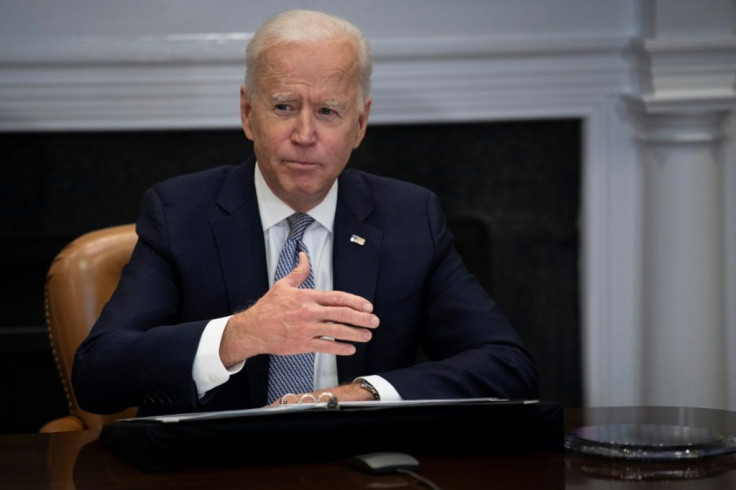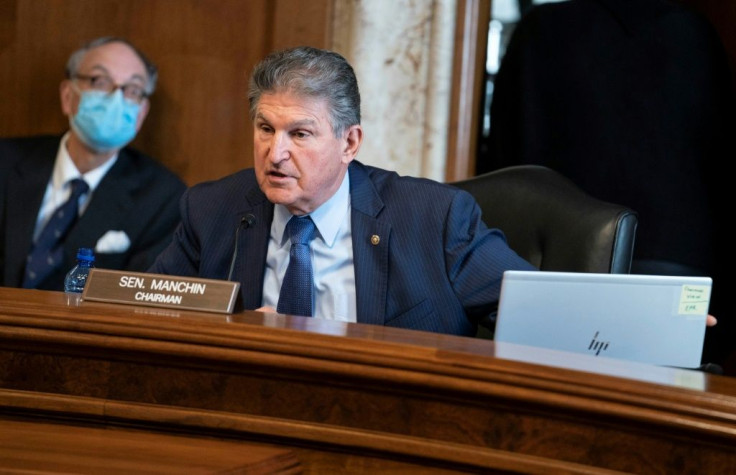Biden Promises Flexibility In Landmark $2 Trillion Infrastructure Bill
US President Joe Biden promised flexibility in a rare meeting Monday with opposition Republican lawmakers, as well as Democratic allies, to push his more than $2 trillion infrastructure bill.
The massive project is a daring bid to rebuild the United States and also cement Biden's place in history as a president who restored the role of the central government in shaping the often fragmented country.
The White House meeting between Biden and eight members of Congress was meant to show that the new president has made good on his promise to end the divisiveness that turned Washington into a permanent dog fight under Donald Trump.
Four senators and four members of the House of Representatives were invited -- half of them from each party.
"It's a bipartisan meeting here," Biden told reporters in the Oval Office. "I'm prepared to negotiate."
Biden so far has zero support from Republican lawmakers for his giant spending plan, which would pour money into everything from reconstructing the ragged highway system to bringing broadband internet to farming communities and fixing household water supplies.

To pay for this, Biden is proposing a jump in the corporate tax rate from 21 to 28 percent.
What a senior Biden administration official called "a bold once-in-a-generation investment in America" is a must win for a president who has surprised many with his appetite for going big.
Consciously modeling himself on Franklin Roosevelt, or FDR, and his 1930s New Deal program to lift the United States out of the Depression, Biden wants to transform post-Covid America.
Rather than a traditional infrastructure package focusing exclusively on the obvious targets like roads and bridges, Biden wants funds to flood into green technology, schools and every other aspect of the wider economy in a bid to "own the future."
"America's no longer the leader of the world because we're not investing," Biden said last week, referring to the ever-fiercer competition with China.
Polls show broad support from voters for the idea, even if members of Congress are opposed.

Republicans, stung at the way the Democrats forced a $1.9 trillion economic relief bill through Congress in March, say the corporate tax increase will hammer US competitiveness.
Mitch McConnell, the senior Republican senator, said Monday that "less than six percent of this proposal goes to roads and bridges" and would mean "one of the biggest tax hikes in a generation."
Biden insisted Monday that he is ready to negotiate over both the "extent" of the project, "as well as how we pay for it."
However, the White House has made clear there can be no fundamental reduction in the make-up of the package, rejecting Republican complaints that it contains too many leftist pet projects, as opposed to real infrastructure goals.
"We will not be open to doing nothing. Inaction is simply not an option," Biden said last week.
The White House warns that if Republicans don't come aboard, the Democrats will try to pass the mega-bill alone, using a special budget process that allows them to get around the fact that they have only the thinnest of majorities in Congress.
Even this, however, is uncertain. The Democrats would need every one of their senators to hold firm and already at least one -- Senator Joe Manchin of West Virginia -- says he opposes the 28 percent tax rate.
Republicans have characterized Biden as paying only lip service to the idea of bipartisanship, while planning to ram the package through anyway.
But Psaki insisted that Biden had already proven his goodwill.
"You don't use the president of the United States' time, multiple times over... if you did not want to authentically hear from the members attending about their ideas about how to move forward this package," she told reporters.
© Copyright AFP 2024. All rights reserved.





















